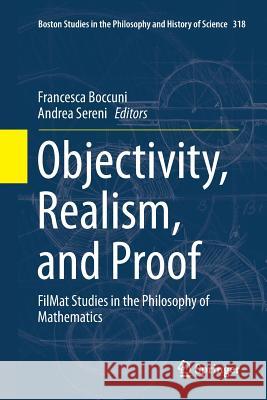Objectivity, Realism, and Proof: Filmat Studies in the Philosophy of Mathematics » książka
topmenu
Objectivity, Realism, and Proof: Filmat Studies in the Philosophy of Mathematics
ISBN-13: 9783319810850 / Angielski / Miękka / 2018 / 344 str.
Kategorie BISAC:
Wydawca:
Springer
Seria wydawnicza:
Język:
Angielski
ISBN-13:
9783319810850
Rok wydania:
2018
Wydanie:
Softcover Repri
Ilość stron:
344
Waga:
0.54 kg
Wymiary:
23.39 x 15.6 x 2.03
Oprawa:
Miękka
Wolumenów:
01
Dodatkowe informacje:
Wydanie ilustrowane











